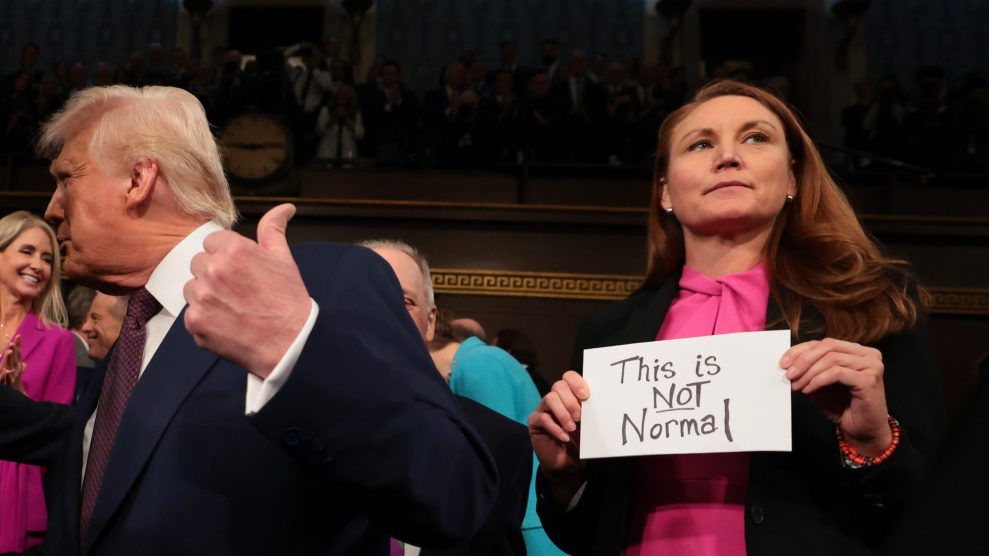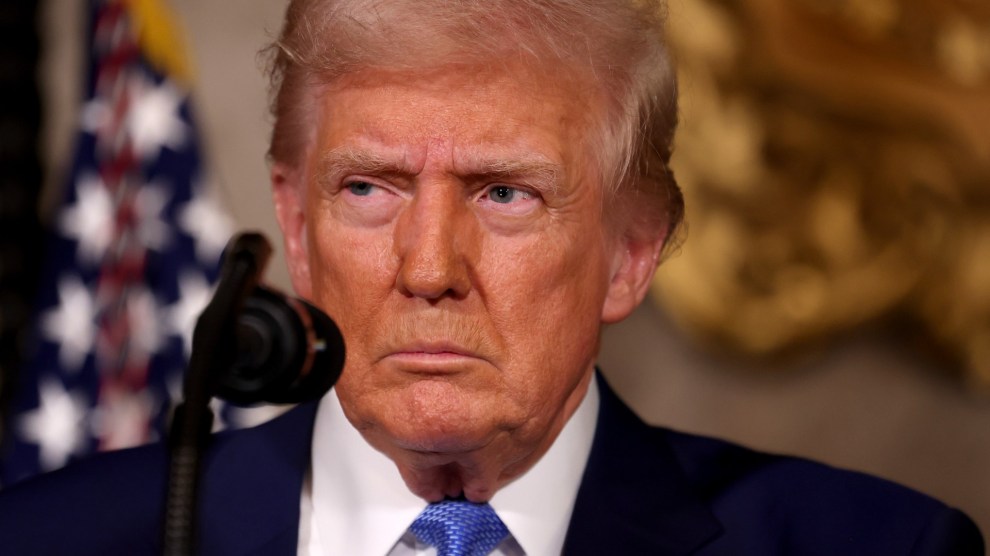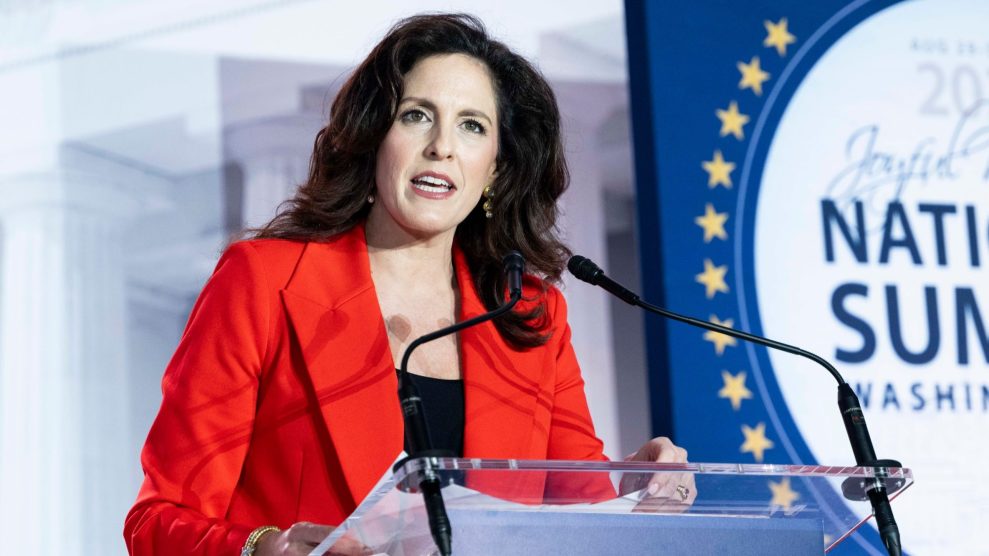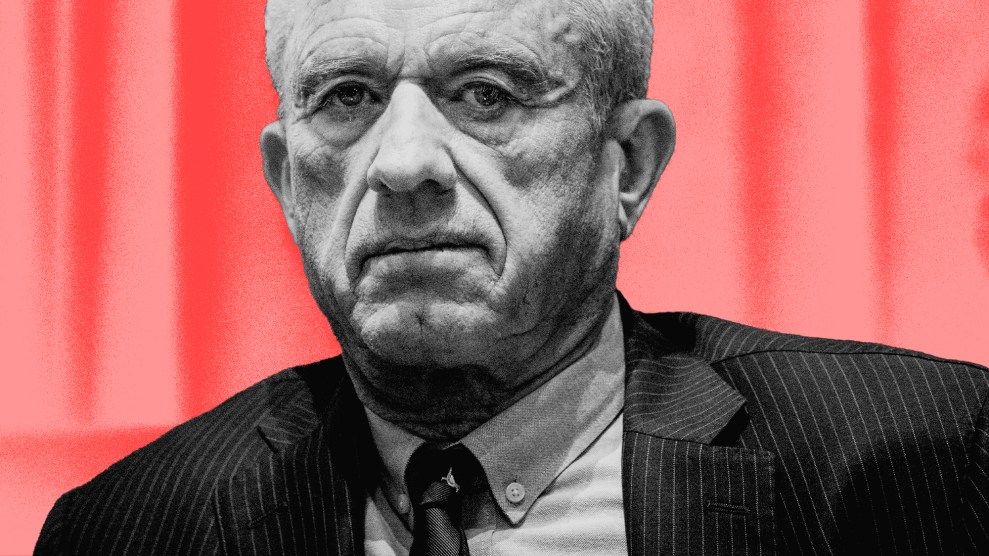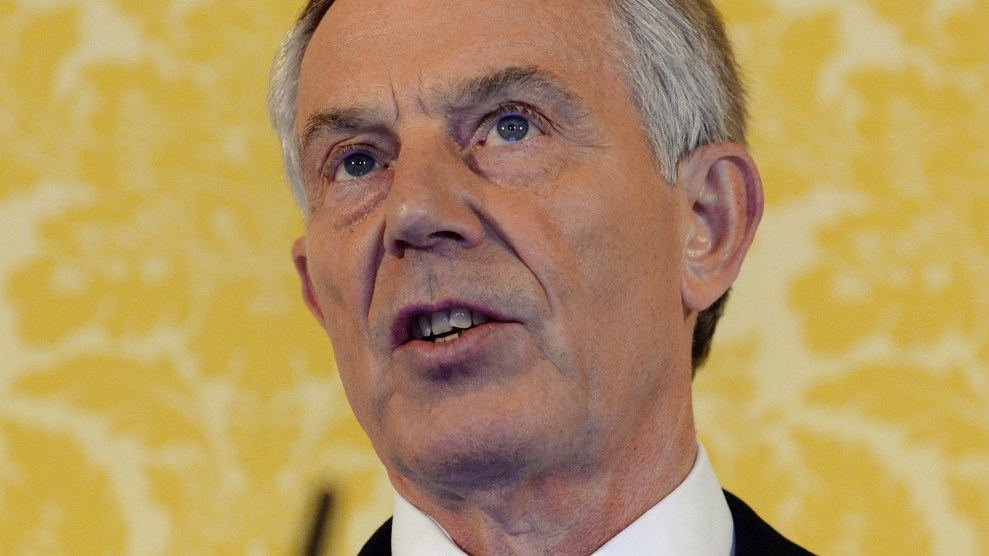
Stefan Rousseau/ZUMA
You almost have to feel sorry for Tony Blair. Almost. Because he was stuck with George W. Bush as a strategic partner when it came time to change the world.
On Wednesday, the Iraq Inquiry, a British commission chaired by Sir John Chilcot and tasked with investigating how Blair’s government led the United Kingdom into the Iraq War in 2003, released its final report, after seven years of probing. Its findings are damning, though not surprising: Blair, when prime minister, went to war alongside Bush based on flawed intelligence, false public statements, shaky legal ground, and inadequate preparation. In the 2.6 million-word report, Blair does come across, as his critics used to say, as Bush’s “poodle.”
Eight months before the invasion, he wrote a confidential note to Bush proclaiming, “I will be with you, whatever.” That hardly makes it seem Blair was acting as an independent leader responsive to the needs and views of his own populace.
The report contains several now-declassified notes that Blair sent to Bush before and after the invasion. Many of the passages are cringe-inducing, as Blair flatters Bush or tries to cajole him into taking strategic action that will improve their collective standing on the world stage. Blair attempted mightily to turn Bush into a leader who would act upon global priorities Blair deemed significant—including climate change and the Middle East peace process—in order to provide Blair and Bush cover as they defended their actions in Iraq. Of course, this was a struggle for Blair, and, in retrospect, his coaxing seems a bit pathetic. The Chilcot report examines Blair’s many miscalculations regarding Iraq, but perhaps his biggest one was that he thought he could influence Bush and make him a better man.
In a note written days before the Iraq invasion, Blair went all-out with the adulation. He told Bush:
This is the moment when you can define international politics for the next generation: the true post-cold war order. Our ambition is big: to construct a global agenda around which we can unite the world; rather than dividing it into rival centres of power.
Your insight, which no-one has articulated better or more clearly is that post 9/11 our security is best guaranteed not just through traditional military and intelligence means but by our values. More freedom in the world means more security. Countries that are free and democratic are countries unlikely to threaten us…So our fundamental goal is to spread out values of freedom, democracy, tolerance and the rule of law, but we need a broad based agenda capable of unifying the world, to get it. That’s why, though Iraq’s WMD is the immediate justification for action ridding Iraq of Saddam is the real prize.
Blair went on to tell Bush that Europeans just didn’t understand what the US president was truly after:
The problem is that a ludicrous and distorted view of the US is clouding the enormous attraction of the fundamental goal. In the past weeks I have had conversations with intelligent Europeans which has vividly illustrated this for me. A European leader who seriously compared Don Rumsfeld with Bin Laden. Another who said how deplorable it would be to see the US system of government in Arab countries. “Why?” I asked, “most Arabs would like to be able to elect their own government, protest if they don’t like it and vote them out; and anyway, isn’t such a democratic system our system, too??”
I talked to another, who to be fair, was completely panicked by some Europeans telling him they wanted to substitute the relationship with the US for one with Russia.
In other words, rational people are behaving very stupidly.
Blair gently suggested that Bush was not getting his message out: “The problem is we’re not communicating with the rest of the world in a way they understand. They get wholly warped views of the so-called right in American politics, played back through their media.”
But Blair knew what had to be done: Bush needed to “broaden the agenda and change the presentation…People need to see you as you are. No-one doubts the toughness. They need to see the sensibility. We need a strategy for this after the conflict is won…I believe, done right, you could then get the international community to accept your agenda. In their hearts, they know it is right, just as they know the US is a great as well as a powerful nation.”
Blair wasn’t advocating immediately sucking up to allies opposed to the war, mainly Germany and France. “I don’t think we make any major overtures until it is clear victory will be ours on our terms,” he wrote. “They’ve not treated us as strategic partners.”
But Bush would have to win back Europe. And Blair had just the agenda for that. He urged Bush to revive the Middle East peace process (which the Bush-Cheney administration had all but abandoned): “I simply repeat, boringly, the MEPP is the test for the rest of the world. It would remove 70 percent of the anti-US feeling at a stroke.” There should also be a broader effort to deal with weapons of mass destruction in nations other than Iraq, moves aimed at reducing global poverty and AIDS, and a commitment to address climate change, he wrote. Trying to be useful, Blair proposed a series of detailed steps that Bush could take in each of these areas.
The British report does not contain Bush’s responses to Blair’s notes. But subsequent events showed that Bush did not embrace Blair’s advice on much of this. He did not revitalize the Middle East peace process. He did not embrace climate change action. All that fawning did not work.
In earlier notes sent months before the invasion, Blair tried to nudge Bush into seeking a UN resolution that would more or less provide a green light for the military action. Blair needed this at home for political purposes. But Blair also was seeking UN buy-in for the post-invasion period. In a January 24, 2003, note, he wrote:
The biggest risk we face is internecine fighting between all the rival groups, religions, tribes, etc. in Iraq when the military strike destabilises the regime. They are perfectly capable, on previous form, of killing each other in large numbers. We will need the backing of the international community and preferably the UN to handle it. We will get the blame for any fighting without it.
That was prescient. Blair was acknowledging there could be chaos after the invasion and noting the need for international support to prevent this. Still, Blair did proceed with the invasion of Iraq without UN backing.
After the invasion, Blair worried that he and Bush were indeed in trouble in Iraq. On June 2, after touring Iraq, he wrote to Bush:
[T]he task is absolutely awesome and I’m not sure we’re geared for it. This is worse than re-building a country from scratch.
We start from a really backward position. In time, it can be sorted out. But time counts against us (a) because the Iraqis are impatient and don’t yet see clear improvement, though plainly delighted at Saddam’s departure; and (b) because if there is any vacuum, clerics/Iran/anyone bad wants to fill it.
My sense is: we’re going to get there but not quickly enough. And if it falls apart, everything falls apart in the region.
Blair nailed that. And he continued worrying. On October 5, 2003, he wrote Bush to reiterate that the two men had to promote that wider global agenda as a context to sell (or justify) their actions in Iraq: “It may be odd for a Labour Prime Minister and a Republican President to have a common political interest, but we do!” He continued:
What’s our problem? Iraq on the ground is tough. We lose our people to terrorist attacks. We haven’t found enough on WMD. So two things happen. Our public wonders whether it was all worth it or even worse is persuaded we misled them. And in the international community there is a sense of Schadenfreude. Blush and Blair started it. It’s their problem, let them sort it…
We need a coherent strategy to get us back on the high ground and get the public at home and abroad to focus on the big picture.
Blair told Bush they needed to revamp decision-making about the post-invasion governance of Iraq and encourage more UN involvement. But he added that, regarding the WMD issue, “I think we have to be absolutely unapologetic. This is the security threat. We must deal with it.” He said it was essential that they push for a “public disruption of the trade in WMD.” And, once again, he tried to get Bush to sign on to the “wider agenda”: climate change, the Middle East peace process, and trade deals.
In this missive, Blair explicitly noted he was concerned about his reelection:
I don’t know about you. But my political position is very clear. I won’t win reelection on Iraq alone. But if Iraq is wrong or people don’t get the security threat, it will be a major problem. On the other hand, if Iraq comes right and people do get the threat, my opponents will have a lot of explaining to do.
And by this time next year, it better be going right, not wrong. For us and for the world!
Six months later, Blair was still fretting. On April 15, 2004, as Bush was campaigning for reelection, Blair wrote him again to share his concerns. First, he praised Bush for having conducted an “excellent” press conference. Then he got to the point: “There are two problems. The first is the residue of discord over the decision to go into Iraq. People who disagreed are desperate to be proved right. So every difficulty is magnified, every step forward ignored, every setback hailed as failure.” The second problem, he pointed out, was “more immediately serious. It is that, irrespective of the original decision to go into Iraq, people ask of us: do they have a plan for Iraq that will work? Do they know what they are doing.”
Blair clearly believed that he and Bush were losing the debate: “At present, our opponents are able to portray the war on terror as either a bid for American domination; a plot to help Israel; or even just an indulgence by trigger-happy ideologues. We need to find a way of forcing the world to confront the dangers it faces; and to build an agenda capable of consolidating and extending our support.”
Blair failed to persuade Bush to adopt the wider agenda. And a year after the invasion—after months of chaos and violence in Iraq—it was too late to convince much of the world that he and Bush had started the war with a plan for what would come next in Iraq.
Blair had started the Iraq endeavor by tying himself to Bush and privately pledging to do “whatever.” After the invasion, he was glued to the guy and could not use the Iraq mess to nudge Bush to deal with the Israeli-Palestinian conflict or climate change. Still, Blair managed to win reelection in 2005, but with the smallest majority of any government in British history. Two years later, his standing diminished because of the Iraq War, Blair resigned as prime minister. He went on to work on the Middle East peace process, receiving little, if any, assistance from Bush, who, too, had won reelection.




